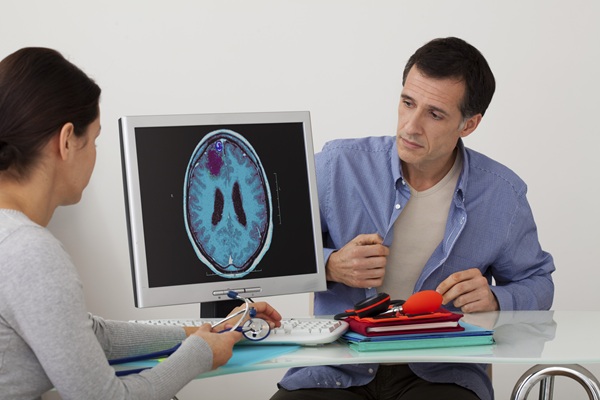Facial Reanimation: Restoring Expression After Nerve Damage

We can use facial reanimation to help address damaged nerves by treating the face's appearance and restoring functionality in facial nerves. Damaged nerves can cause a portion or the entire face to freeze in a contorted state or droop, also known as facial paralysis. Learn how our neurosurgeon can help restore your natural facial expressions.
A Brief Overview of Facial Reanimation
Causes of nerve damage or facial paralysis
Facial paralysis can be temporary or permanent, depending on its cause. Temporary causes can result from surgery, trauma, or a procedure that involves electromagnetic stimulation. Permanent or longstanding causes can result from a genetic disorder, birth defect, or disease.
Facial reanimation surgery is primarily for those with partial or full facial paralysis or who cannot form a complete smile. However, not everyone is considered an ideal candidate for this surgery. Patients with certain underlying medical conditions may have to consider another treatment method.
The types of facial reanimation
While there are many techniques the doctor can perform for facial reanimation, they will consider two primary types for nerve damage: microsurgical muscle transfer and nerve transfers or grafts. Depending on the patient, the neurosurgeon may decide to perform facial reanimation in two stages, requiring multiple appointments over the course of a year. However, some may only require one stage, involving the initial surgery and follow-up appointments. The type of procedure the neurosurgeon recommends will depend on the severity of the patient's condition and how long they have been experiencing nerve damage.
The facial reanimation microsurgical muscle transfer is sometimes referred to as smile surgery. It involves harvesting a small portion of muscle from elsewhere in the patient's body, such as the thigh, and implanting it to replace the damaged facial muscles causing paralysis. The doctor will likely employ it for those with longstanding facial paralysis or those born with nerve damage or the inability to smile.
On the other hand, nerve transfers or grafts aim to restore muscle function or movement to those who once had it but lost it due to trauma or surgery. They primarily focus on the damaged nerves rather than the muscles to restore the face's motor function. The procedure involves harvesting a portion of the sural nerve from elsewhere in the body, likely the ankle, and placing it where needed in the face.
What to expect after a facial reanimation procedure
Immediately following the procedure, patients will awake in our recovery room. The neurosurgeon will prescribe medication for pain and possibly antibiotics. Patients will need to arrange for a ride home after their appointment. We do not recommend a ride-share option but a trusted family member or friend. The neurosurgeon will also place the patient on bed rest for a few weeks, with patients typically able to return to normal activities after clearance. Moreover, following facial reanimation, regardless of the neurosurgeon's method, patients must understand that recovery is a process. Therefore, it can take several months to see results in the patient's facial motor skills.
Call us for more information
Facial reanimation can help you freely perform facial expressions and improve your speech abilities. If this sounds like something you are interested in, contact our Phoenix office for more information.
Request an appointment here: https://arizonaneurosurgeon.com or call Randall Porter, M.D. at (602) 603-8951 for an appointment in our Phoenix office.
Check out what others are saying about our services on Yelp: Facial Reanimation in Phoenix, AZ.
Recent Posts
Brain metastases are a serious medical condition where cancer cells spread from a primary tumor to the brain. They are more common than primary brain cancer tumors and can indicate an advanced stage of systemic cancer. This condition can significantly affect your quality of life and requires professional diagnosis and treatment.Brain metastases occur when cancer…
Facial reanimation is a specialized surgical approach designed to restore movement and expression in individuals affected by facial paralysis. This condition may result from trauma, nerve injury, tumor removal, or conditions such as Bell’s palsy. Facial reanimation combines microsurgical techniques, nerve grafting, and muscle transfers to improve function and appearance. When performed by a skilled…
Brain surgery is a complex and delicate procedure. It requires strict aftercare to ensure optimal recovery and few complications. Following the advice of your brain surgeon can help aid your healing process and make your long-term treatment a success. Here are some general tips from Randall Porter, M.D. team to help patients and their caregivers…
Considering undergoing back pain treatment from an experienced chiropractor? There are many different types of back pain one can experience. There are also many different types of back pain treatments available from a chiropractor. While back pain is more common as one gets older, anyone can experience back pain. The most common cause of back pain…


